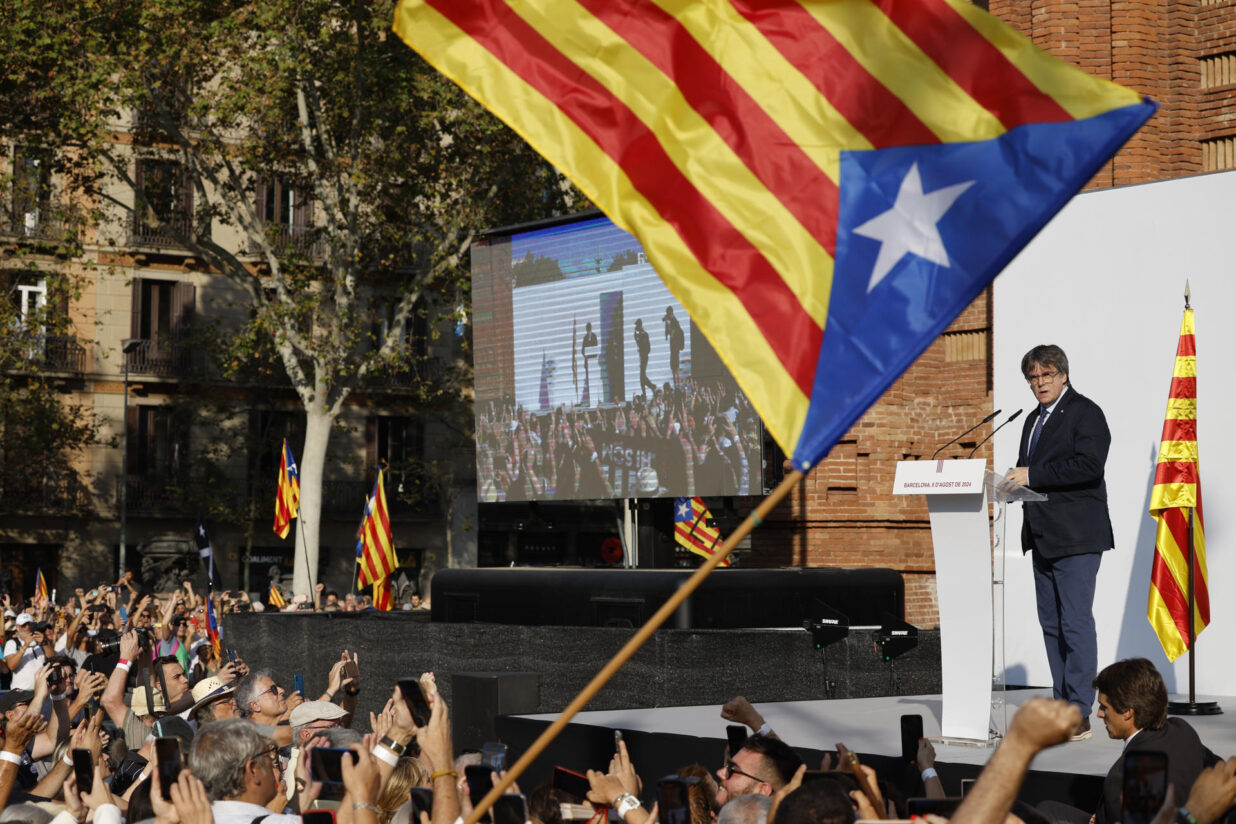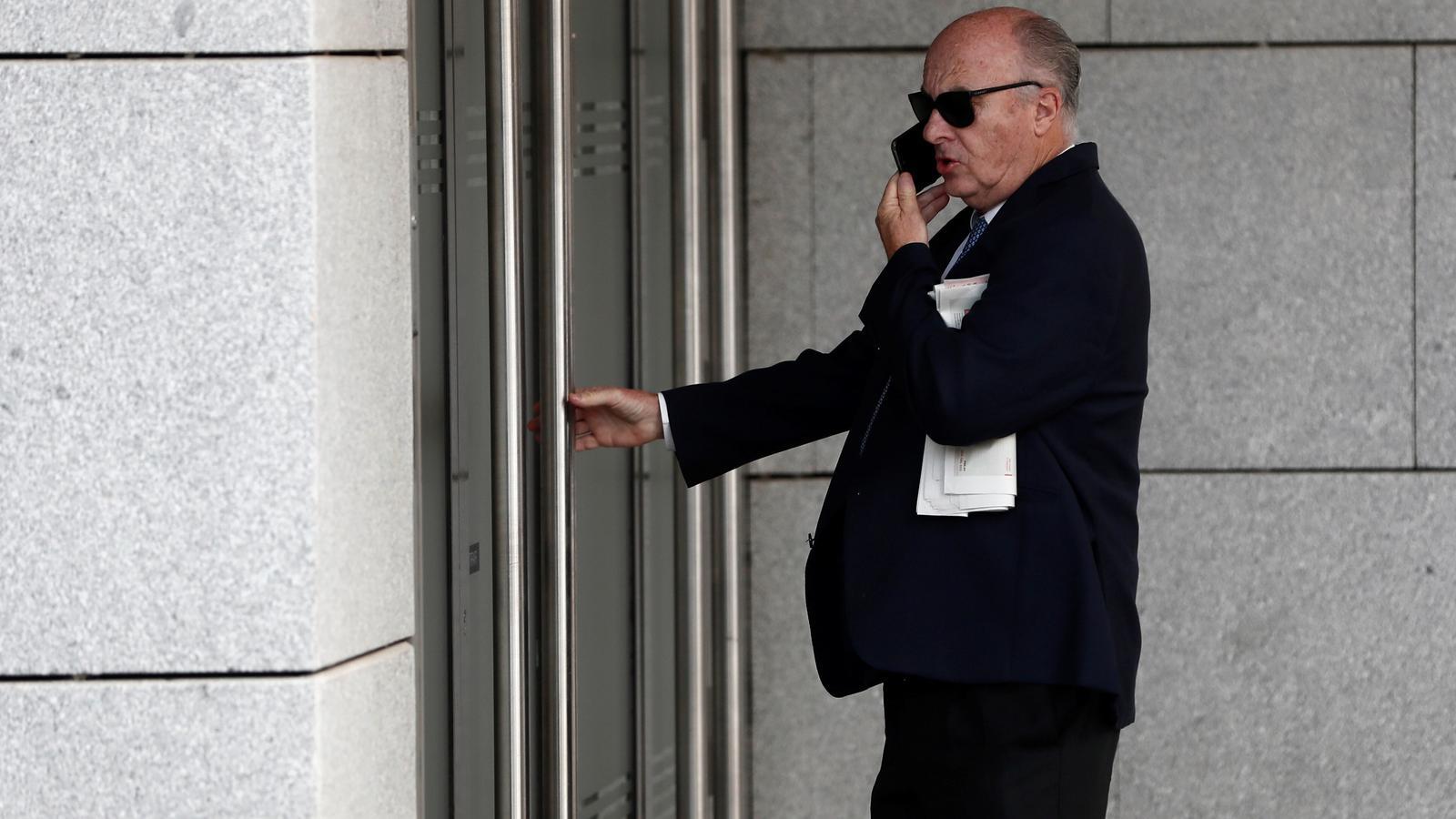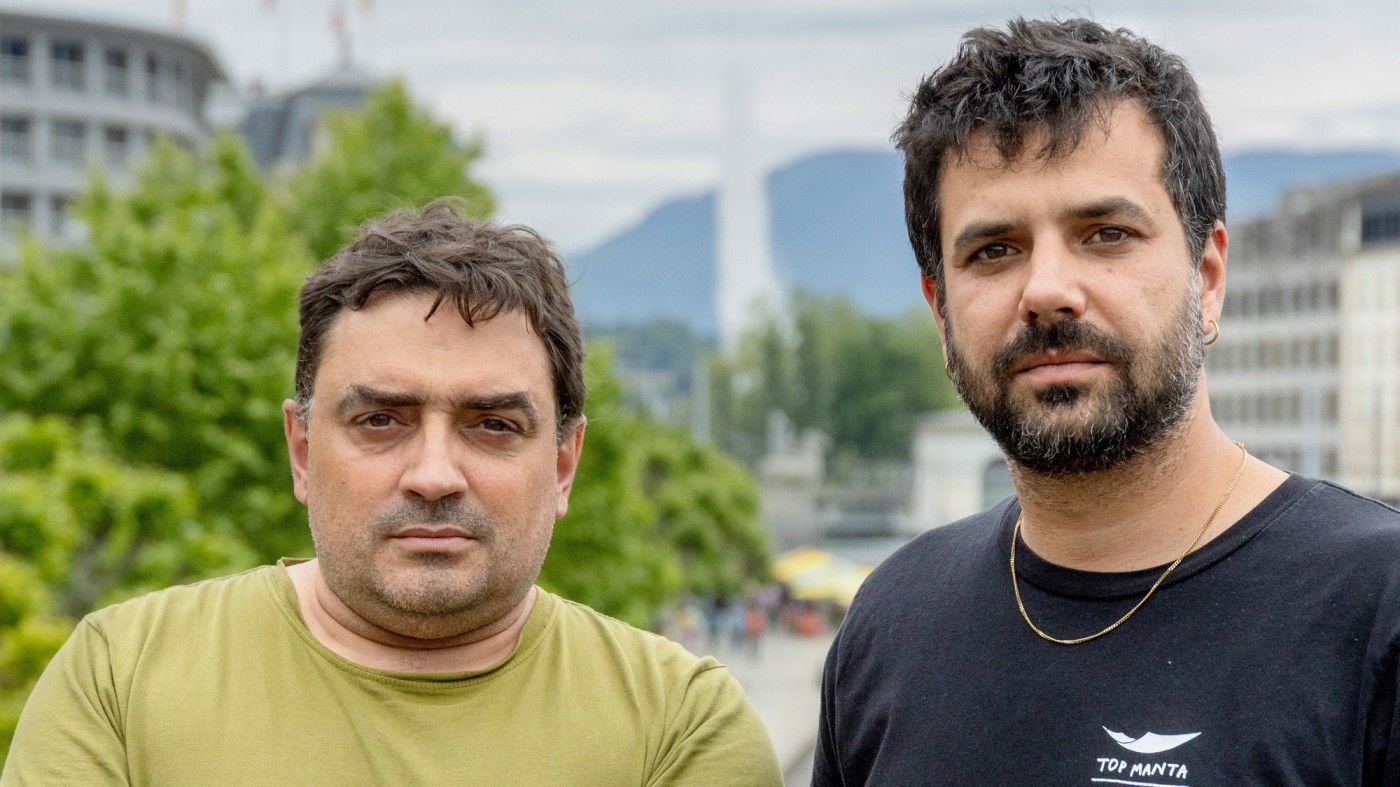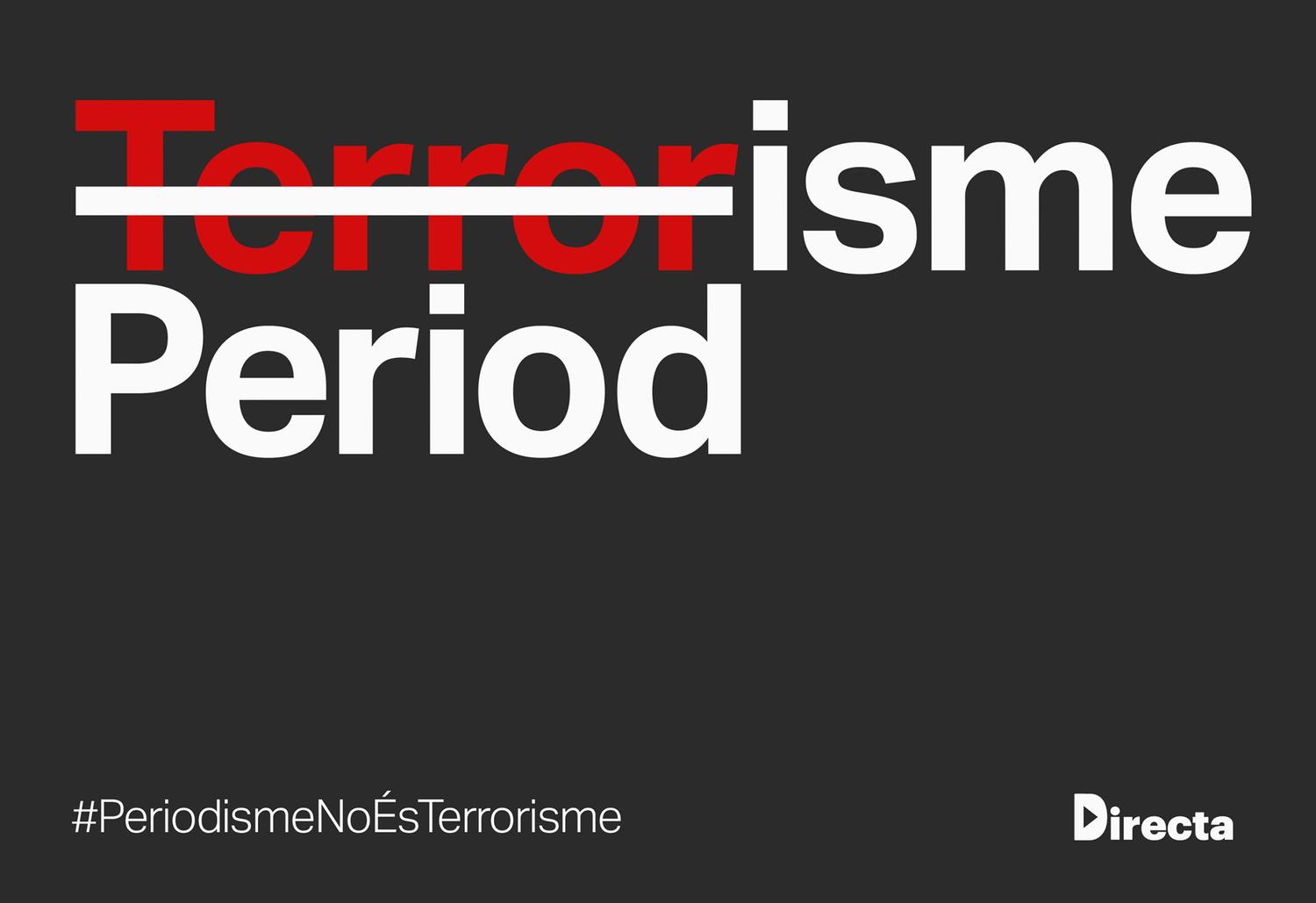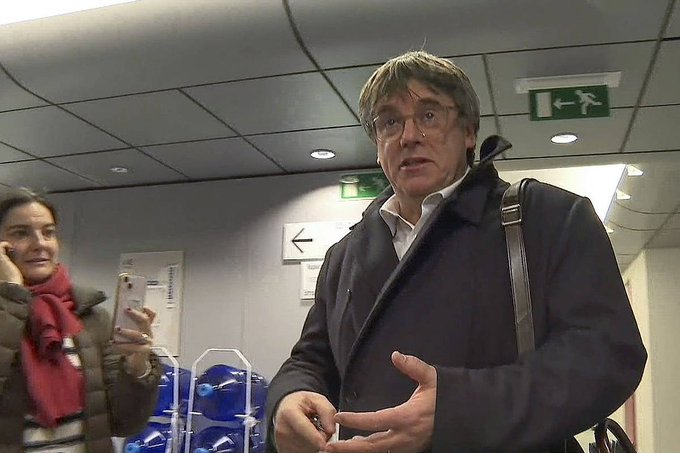"The Spanish State has two armed arms: the legal and the communicative arms"
- Lluís Llach and the producer Jaume Roures approached Pamplona at the end of March to present La revolta permanent, a film on the terrible events of 3 March 76 in Vitoria-Gasteiz. The Sanfermines 78 gogogoan initiatives came to Bilbao invited to participate in the film cycle Images against impunity. We are talking about impunity, the strength of the songs, the continuous revolts and the situation of Catalonia with the creator of L’Estaca.
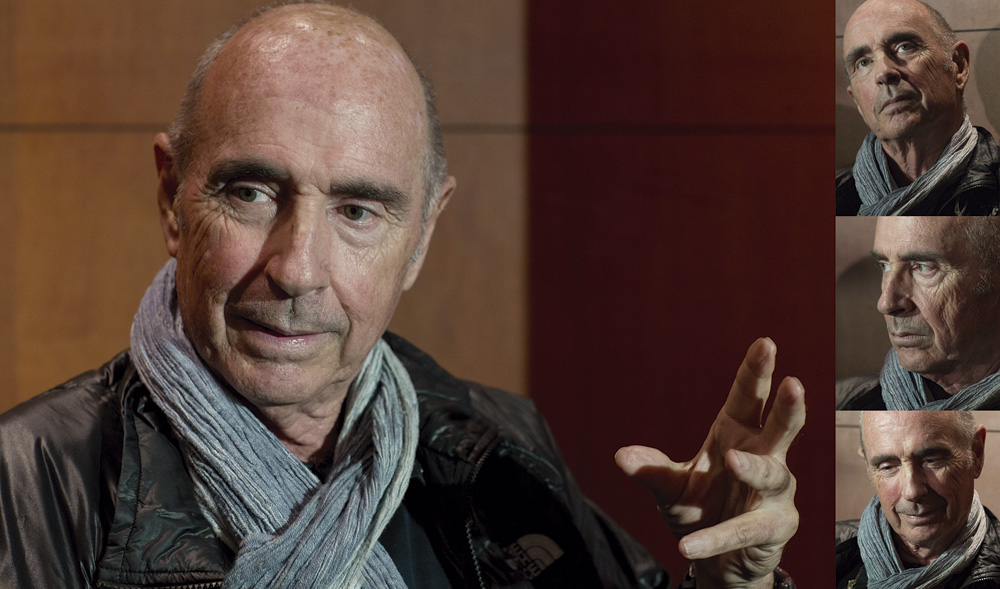
Musikagile katalana eta kantari ezkertiarra. Nova cançó mugimenduko ordezkari nagusi gisa ezaguna. Francoren erregimenaren aurka bat egitera deitzen zuen L’Estaca kanta mitikoa sortu zuen. Politikan, Junts pel Sí koalizioko diputatua izan da Kataluniako Parlament-ean 2015etik 2017ra. Celler Vall Llach upategia sortu zuen 90eko hamarkadaren hasieran, Priorat-eko Jatorrizko Izendapeneko ardoak ekoizten dituena.
You are the protagonist of the film La revolta permanent.
I was just an excuse to make a film about the macabre events of Vitoria. That same night on March 3, 76, I began to compose Campanades to Morts. In 2006, a year before I retired, they proposed to make a film and I was at ease, but I am not the protagonist, but the people of Vitoria and the relatives of the victims. It was directed by Lluís Danés and produced by the dangerous Mr. Jaume Roures. This work served to explain in a very different way what happened. Until then, I hadn't told the whole truth. We denounce the ineffectiveness of power and the derision of a state. In 2006, 30 years later, and still today, they still do not ask for forgiveness from the city and the victims of Vitoria so it can be considered a state crime. We lived that with great emotion.
The recital we made in Vitoria in 2006 is unforgettable for all the people there were. The members of the March 3 Association attacked and arrested several at the demonstration that took place that same afternoon. I went out to sing with a 30-year-old song, and that same day the same thing was happening. The perfect reflection of what the Spanish transition has been.
Is your song a kind of hymn?
It's a privilege that people have considered it as a symbol, but it's not a merit of mine. I'm not sorry like my song. It ran out of my hands in the 1970s and I haven't recovered it. You might think that's the biggest thing a composer can expect and I don't want to look strange, but it gives me a little bit of shame, because that means we haven't done things right. We have left things to this generation without fixing, without cleaning the house.
Some songs from the '68's or '70's are still a symbol, because they serve to denounce things that are unacceptable to many people from different parts of the state.
You're a mythical figure.
Oh, yeah? It's 1.75 meters high, normal, unhealthy, and for the person who pulls on the strings to adapt to the zero point that's coming to him right away, which is what I'm touching right now. That is my current reality, nothing else.
What do you see when you look back?
I started singing at the age of 19, and they immediately put me as a locomotive. When you run, you don't realize many things, yet I've lived fantastic privileges. I've always tried to live the day to day and be consistent. It's true that I've given multitudinous concerts and I've filled large halls, but to me that's not the fundamental thing. For me, the most important thing has always been to do a communication job, until I stopped singing. I see it like this.

Is guitar a weapon of mass mobilization?
In my case, there was more weapon for mass sleep! [laughs]. What happens is that, above all, when a part of society is very tense and suffers great repression, songs serve as a reference for free communication, because there is no other option. I always say that in the 1960s and 1970s, singers were centres of freedom reference in the desert, even if we had to censor because we could say something.
Today, it's still fantastic in my home. We Catalans call our country “my house”, and there are many people dedicated to music. Because we live again under tension, there's surely a lot of people working with human consciousness and great militant capability. That those who think that musical mobilization is over, that they take trampolines, this is going to take a long time!
You know perfectly well what censorship is. What do you think of the Mordaza Law?
Repression is now legalised. It already existed in Franco's time, but it could not be said that it was democratically legal. When the Moorish Law is made legal in a country, it can be said that we have a crisis of total democracy. Now singers go to jail. I do not remember having sentenced a singer to three years in prison in my time, but I may have lost my head, but I do not remember that. At present, however, neither one nor two of the defendants have been prosecuted in the criminal case. Similarly, puppeteers or those who put their nose on to protest against the beatings they have given to people in the referendum on 1 October. It seems that the songs of Franco's time have all the news, and if it seems it will be because it is.
We in Catalonia are afraid that they will follow us all. The problem in Catalonia is proof of the failure of the transition. Your notarial part. In '78, the future project that some wanted to carry out failed. This is the burial of the Transition, it has failed, and we are an example of it. The transition was made to perpetuate some political and economic interests. Among them, the right and left have done so, and that is why there are impressive resistances. Officials, revolving doors, have kidnapped the State. I believe that we are facing a terrible crisis. Catalonia is a thermometer and we are now in a state of siege. We have already moved from the state of emergency to the state of emergency. We cannot express our opinion or make policy to fulfil democratic mandates.
What is Catalonia like?
We are in a fragile moment, because our freedoms are in serious danger. The State does not respect the will of the people, civil and elected rights.
Less aid than expected internationally?
We expected greater sensitivity. The first step was to tell the Spanish State that it had to sit at the table to negotiate with us. It says no, so next time we're not going to try, or if we do it differently. The second thing we thought was that Europe would be sensitive to such a display of pacifism and honesty. States have not been sensitive at all. I would say, however, that it is normal, because they defend their status and support each other. And now what's going on? Well, little by little the Catalan question is coming to public opinion. We are not able to reach the European classes, but we are turning around and we will soon reach the popular classes. Citizenship is sensitive. Neither in Germany, nor in Belgium, nor in the Netherlands, nor in Switzerland, do we have a very important public opinion. This makes me hope, I think it can influence Juncker and other crows like him. I hope they will have to listen to them in order to protect their spaces of power. In the meantime, we are trying to move forward as a people and it is very difficult.

Is imagination one of the main characteristics of procés?
We have been forced to invent politics. European thinkers are watching us carefully, among other things, because we have not had enough strength to cope with an ambitious state and have had to develop democratic creativity. Puigdemont didn't escape for fear. This gentleman went to Brussels to be able to work from the outside.
What has your political activity been like?
I withdrew from the next political option, the December elections, because the candidature was not united and it seems to me that, being a non-politician, my job is to try to bring together different positions, but in a compatible group.
It's been a very tense learning. I have also been touched by good and very complicated times. Those who were with me have endangered their political and professional career, and that raises the level. In a parliament like this one can talk about a lot of things. Coherence and honesty were of course taken for granted. I have also learned a great deal, for example, what kind of partisan is there or what outdated instrument is Parliament. It's a 19th-century instrument. Political issues do not coincide with social and communicative issues. It seems that a group of Diplodo (a type of dinosaur) is moving slowly. New formulae must be sought. A great idea by Puigdemont and his collaborators is to organize a virtual republican structure.
I'm done wrong, by depression, but I take my pills and I moved on.
Data on your business, some statements you have made... have used a lot of things against you. Have you been hurt by criticism?
I felt attacked, but in no way defeated. One of the biggest scandals was to say that by starting the republic officials would be forced to comply with our laws. I do not know which parliament makes the laws so that they are not complied with. That's why I've been called a fascist and one. What is serious here is not Catalonia, but Spain. We received this kind of media bumps there. I sang a lot throughout Spain and in France. I know a lot of people, but imagine, for example, a Valladolid progre that at the kiosk you can choose between El País, ABC, El Mundo, La Razón and some worse still. In this situation, the State does not need armies. Today the State has two armed arms, one legal and the other communicative. What is that citizen going to think about when he reads that they have lowered the flag for Christ to die quieter?
Do you have any relationship with the musicians here?
Before yes, now no. Mikel Laboa was my older brother. We didn't see each other very much. We had to cultivate our friendship in the cameramen as we waited to go out and sing. When your friends leave forever you regret having lived like this.
Why did he stop singing?
I've always split my life into three acts, like Shakespeare most of the plays, and I didn't want to get to the third one as a locomotive. I wanted to look at things differently, accept my old age and change my life. I've been singing since I was 19 and, although it's been a privilege, I wanted to learn other things. I went to Africa by chance, I started to write by chance, I opened a winery by chance… My life has been very rare, but I have had the best thing that can happen to you in life: I have learned many things.
“Kataluniaren aferan okerren ulertzen den gakoetako bat da sinestea dena Convergenciako bulego batean eginiko konspirazio judeo-masoniko moduko baten fruitua dela. Hori ez da horrela. Nahiko lukete horrela izatea, baina dena kalean sortu zen eta horregatik independentziaren aldekoak pasa ginen %14 izatetik %48 izatera. Horrek behartu ditu alderdiak estrategiaz aldatzera eta klase politikoa konpromisoak hartzera. Horregatik herritarrak oso eskertuak gaude. Bozkatutakoa gauzatzera konprometitzen ziren frogak behar genituen aspalditik eta baditugu. Horregatik batzuk kartzelan eta deserrian daude. Sentipen oso arraroa da. Etsipena, eta aldi berean poza, klase politikoa koherentea dela ikusita”.
“Garai oso latzak datoz Europan. Mundua amildegiaren ertzean dago, Trump bezalako ergelekin eta agintari amaiezinekin: Txinakoa, Putin… Hemen zortea dugu. Espainiako Estatuaren onena da errepide mapa oso garbia duela. Ate birakariak jiraka ari dira etengabe. Berdin dio ezkerrak edo eskuinak agintzea, erabat bahituta dagoelako Estatua. Borroka egitea eta botoa ongi ematea baino ez zaigu geratzen. Ez da horren zaila! Horregatik gabiltza ni bezalako zahartxoak hemen bueltaka, ‘gazteok, kontuz!’ esateko”.
“Estatuak ez du ulertu botoei nola irabazi. Tankeekin agian, baina horrela demokrazia usteltzen doa. ‘¡A por ellos!’ astakeria,
herritarrek beraiek ordainduko dute etorkizunean. Gure esperantzatako bat da, sozialistek lokartu zuten Espainia, egunen batean esnatuko dela”.
Walk from a train station, two friends and a hug. This hug will be frozen until the next meeting. I'll come home, he'll stay there. There, too, will be free the painful feeling that injustice wants us to catch. Jesús Rodríguez (Santa Coloma de Gramenet, 1974) is a journalist,... [+]











